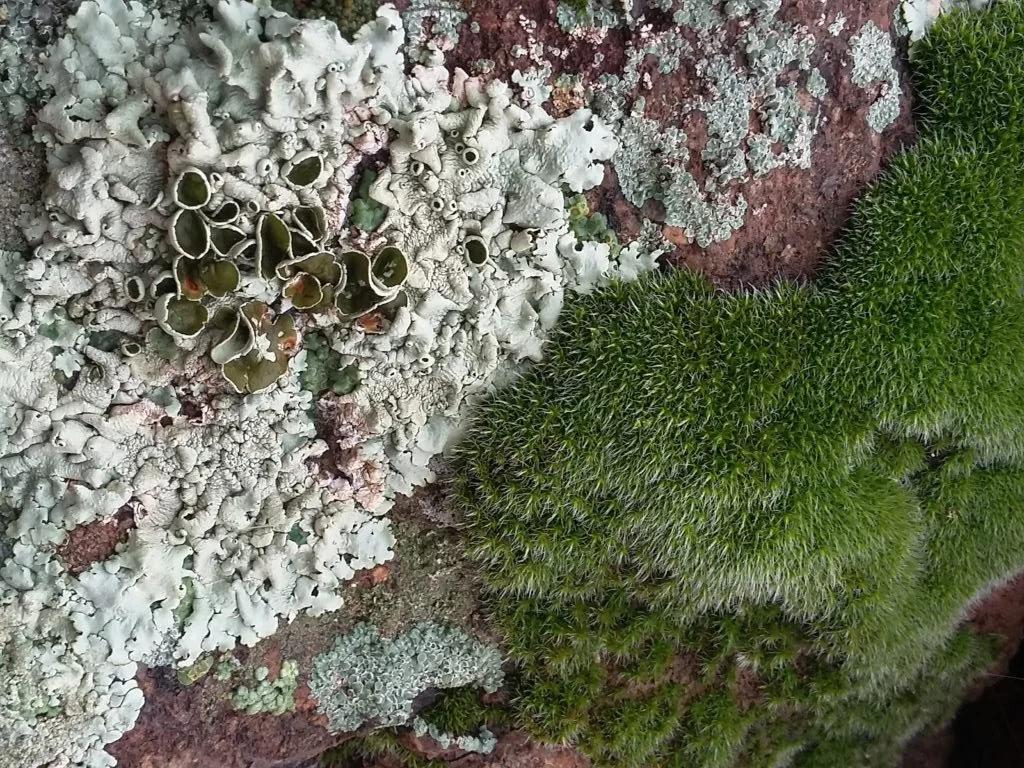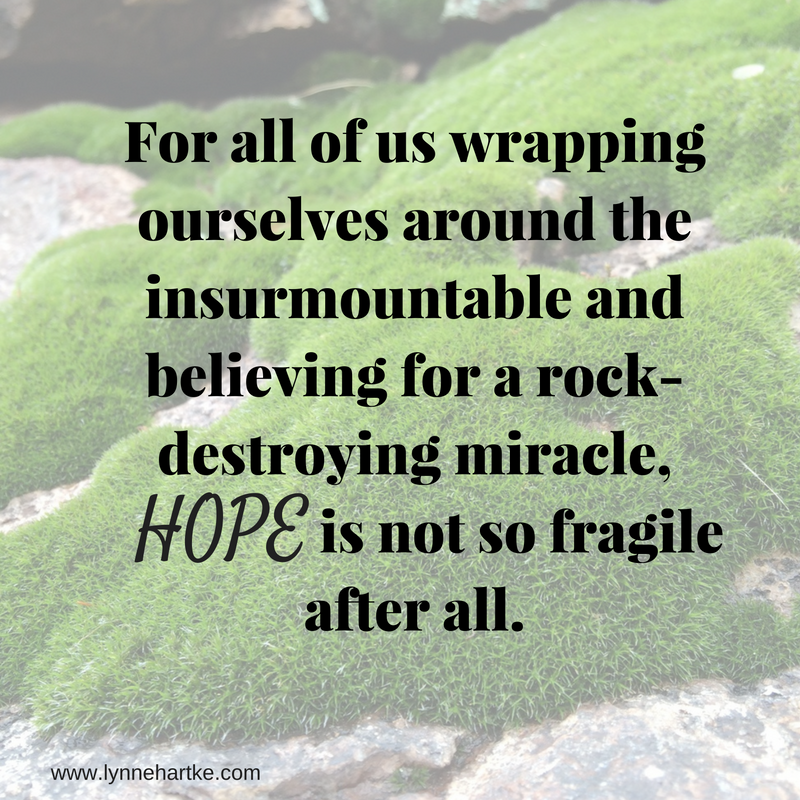Rock, Paper, Scissors and Other Life Lessons
Rock, Paper, Scissors.
As a child, I remember playing the game at recess: counting off "One, two", and on "Three" forming my fingers into a fist, a pair of scissors, or a flat hand, thus mimicking the three choices available in the game. Winners were given temporary reign in decision-making in the neighborhood or the school playground.
I almost always chose scissors or a rock.Paper seemed too fragile. Easily ripped or damaged. Weak. Even given the analogy that paper covers rock, I never considered paper as having any properties that gave it an edge in the game.
Give me a rock every time.
Hard. Immovable. Firm.
On Saturday, Kevin and I and two friends, Pete and Ginger, went to Rogers Trough Trailhead, a journey involving 12.5 miles across dry desert washes on a four-wheel drive road--a road that would have been impassable in our Toyota Highlander, but was no problem in our friends' all-terrain RZR. Except for an incident involving a wet cow pie being flung in two people's faces from the wheels, we arrived unscathed. (Note to self: bring baby wipes, preferably scented baby wipes, in the future.)
We stepped from the vehicle into misting rain. Raincoats were dug out of backpacks, and I added rain pants for good measure, because I hate hiking wet. After twenty minutes, I stripped off the rain pants as it was not cold enough to hike in the extra layer. In air scented with sage, we hiked several hours in and around a dry creek bed, stopping to take photos of raindrops on agaves, the golden robe on a cottonwood, and the rain-drenched bark of the manzanita.
The desert has a different beauty in the rain.
Patches of blue sky dotted the low-hanging clouds on the ride home. Kevin's eye caught a flash of red from a darting cardinal. I saw a common gray fox adventuring out from the underbrush.
"Look at all that green," I exclaimed as we drove past a rock face on our left.
"Do you want a photo?" asked Pete stopping the RZR in the loose sand.
"Yes!"
We tumbled out for a close-up look at desert green, something I would never have done when I first arrived three decades ago to this land of endless brown, where I had declared the landscape all the same, with its continual vistas of cactus and drought-starved earth. But now with my roots deep in the familiar, I was drawn to this microclimate where seepage from the rain was evident across a thirty-foot expanse of terrain, a location where enough moisture periodically collects to allow life.
Green life.
The pale green of lichen. The framing green of prickly pear, Utah agaves and desert grasses. The bright green of desert moss, "so soft, it looks like it should purr," according to Pete.
The lichen caught my eye--something I had never photographed in all my years of desert pictures.
Lichens are a strange organism that live a dual existence as both a fungus and an algae in a symbiotic relationship. According to the National Audubon Society's Field Guide to the Southwestern States, "The fungus surrounds the algae and takes up water and minerals...the algae supply carbohydrates produced by photosynthesis." Naturalist and author Susan J Tweit, in her book, Seasons in the Desert, writes "What you see is actually the fungus; the microscopic cells of green algae...are hidden, woven into the framework of fungus threads."Y
es, there is a fungus among us, and the name of this particular species is Cumberland Rockshield. The habitat for this organism?
Rocks.
Not trees or mountains or rivers.
Rocks.
The Cumberland Rockshield hangs out on rocks, resting dormant for over a year, waiting for desert rain. But in the waiting, the lichen is busy.
Over time, rock lichens sink their spreading thallus "into every minute nook and cranny" of the rock, gradually breaking apart tiny rock fragments as the lichen expands and contracts, depending on the availability of moisture. Seeds fall into the cracks created by the lichen, allowing other plants to grow. The website Desert USA speculates that the lichens arrive first to a rocky surface and "then other plants such as mosses and grasses begin to grow, followed by herbs, hardy shrubs, and finally trees."
Lichens pave the way for the breakdown of the insurmountable.
On the way home we stopped at a Mexican restaurant for a late lunch--a mom and pop establishment where the special of the day--a machaca beef plate--was handwritten with chalk on a blackboard at the entrance. A septuagenarian waitress named Flo took our order, slapping Kevin with a menu when he tried to order before the women.
"Didn't your mother teach you anything, George?" she scolded. He remained George for the remainder of the meal.
While bringing out chips, hot sauce and our food, Flo peppered our conversation with her job at the post office in a small town before her retirement, which apparently didn't last long, before boredom drove her to begin waitressing over twenty years ago.
"There are easier cures for boredom," Flo declared with a laugh.
When asked about damage to a finger, Flo confessed it was a leftover reminder from chemo for stage 4 colon cancer that had metastasized to her liver.
"They cut out half my liver," Flo said. "Two years ago. Since then the scans have been clean."
The conversation turned to a sister who now has cancer--a sister who is a massage therapist and has dropped to 80 pounds. Who lives in New Mexico.
"I'm going over the holidays to be her nurse," Flo said, "but I don't think I could ever be the nurse my brother was to me."
Flo picked up a soiled napkin and wiped the table with a rag.
"I moved into his house and lived in the living room downstairs during chemo. He would ask me, 'Do you want waffles? Bacon and eggs? Hash browns?"
She smiled in memory.
"'Does a root beer float sound good?' he said. 'I think a root beer float sounds good. How about mac and cheese?'"
Flo shook her head. "My sister wouldn't weigh 80 pounds if my brother were taking care of her."
Flo stared off past an unseen spot over my friend Ginger's shoulder. Her voice dropped. "I wonder if my sister will be able to make tamales with me this year?"
We are silent at the rock she has tossed into the conversation. The rock just sits there.
Indestructible. Solid. Unyielding.
What do you say? What line of defense is available?
"I'm a cancer survivor," I said, after a bit, skirting around the boulder.
Flo's face beamed as she reached around my husband George and gave me a high five.
"Tell you what," she said, switching the conversation away from cancer, "I will pay your bill if the receipt stays in the air and doesn't land on the floor." She tossed the paper into the air in a ritual she had probably done over a thousand times and watched it float all the way to the floor, before picking it up with a laugh.
We paid and gathered our things. Flo moved to another table.
And here is where I want to tie all the pieces of this post with a beautiful ribbon and allow you to unwrap a happy ending. I've been tapping away on my keyboard, writing and backspacing, and wanting a 100% guarantee.
For Flo. For her sister. For all of us wrapping ourselves around the insurmountable and believing for a rock-destroying miracle.
Yet. Yet. Yet, I cannot.
Because my job isn't the miracle. Nor is it yours. That's God's business.
So where does that leave us in regard to rocks in the room? In our lives? In our marriages? In our relationships?
Our job is the covering, the choosing to extend kindness. The offering of a root beer float. The flying to New Mexico. The wrapping of love around an impenetrable diagnosis as we hang onto fragile hope and in the hanging on, realizing that hope is not so fragile after all, because anything that can wrap itself around a rock and exist in a microclimate of life is very strong indeed. Very strong.
Maybe it's time for me to reconsider my choice in the game of Rock, Paper, Scissors.


